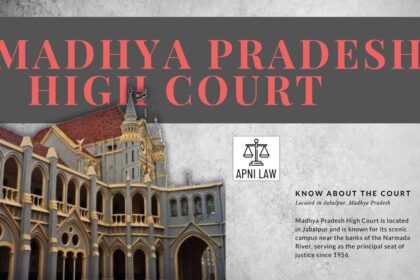Introduction
The Transgender Persons (Protection of Rights) Act, 2019, aims to safeguard transgender individuals from abuse and discrimination. It clearly defines punishable acts that violate their dignity and safety. The law ensures protection against forced labour, abuse, and denial of public access. It provides a legal shield for transgender persons and holds offenders accountable.
What Is The Punishment for Offences Against Transgender Persons Under Section 18 of the Transgender Persons Act?
The Transgender Persons (Protection of Rights) Act, 2019, lays down strict penalties for offences against transgender individuals.
If anyone forces or entices a transgender person into bonded or forced labour, they face legal action. However, this does not include compulsory services imposed by the Government for public purposes.
The law also punishes those who deny transgender persons access to public places. Blocking their entry or movement in areas open to the public is a punishable offence.
If someone forces a transgender person to leave their home, village, or place of residence, they will face imprisonment and a fine.
The Act also criminalizes any act that harms the life, safety, health, or well-being of a transgender individual. This includes physical, sexual, verbal, emotional, or economic abuse.
Anyone found guilty of such offences will face imprisonment for at least six months, which can extend up to two years, along with a fine.
How Does Section 19 of the Transgender Persons Act Support This Provision?
To support these protections, the Central Government will allocate necessary funds to the National Council for Transgender Persons. These funds will help in carrying out the goals and provisions of the Act.
Case Law: Legal Action Mandatory for Abuse Against Transgender Persons
In the landmark case of Arun Kumar v. Inspector General of Police & Others (2021), the Madras High Court highlighted the enforcement of protective provisions under the Transgender Persons (Protection of Rights) Act, 2019. The court took a strong stand against police inaction in a case involving harassment and abuse of a transgender woman.
Case Background
A transgender woman approached the court after facing verbal abuse, physical harassment, and threats from her family and neighbours. She also alleged that police officials failed to register her complaint and took no action, despite repeated visits to the police station.
Petitioner’s Stance
The petitioner demanded:
Legal action under the 2019 Act, specifically the sections dealing with abuse and forced removal from home. She wanted protection of her right to life, safety, and dignity under Articles 14 and 21 of the Constitution. Also accountability for police officers who ignored her plea.
Court’s Ruling
The Madras High Court ruled that:
Transgender persons have full protection under criminal laws, including the 2019 Act. The police must immediately register FIRs in cases involving abuse or violence against transgender individuals. The court stressed that denying protection or ignoring complaints violates the law and defeats the purpose of Section 18 of the Act. The court also ordered sensitivity training for police personnel to handle transgender rights cases properly.
Final Verdict
This case reaffirmed that abuse, harassment, or denial of rights to transgender persons is a punishable offence under the 2019 Act. The judgment strengthens the enforcement of criminal provisions and ensures better accountability from authorities.
Conclusion
This section of the Act plays a key role in protecting transgender persons from exploitation and violence. It enforces strict punishment for those who violate their rights. By setting legal consequences, the Act ensures a safer and more equal society. It also mandates government support to empower and uphold transgender rights.








